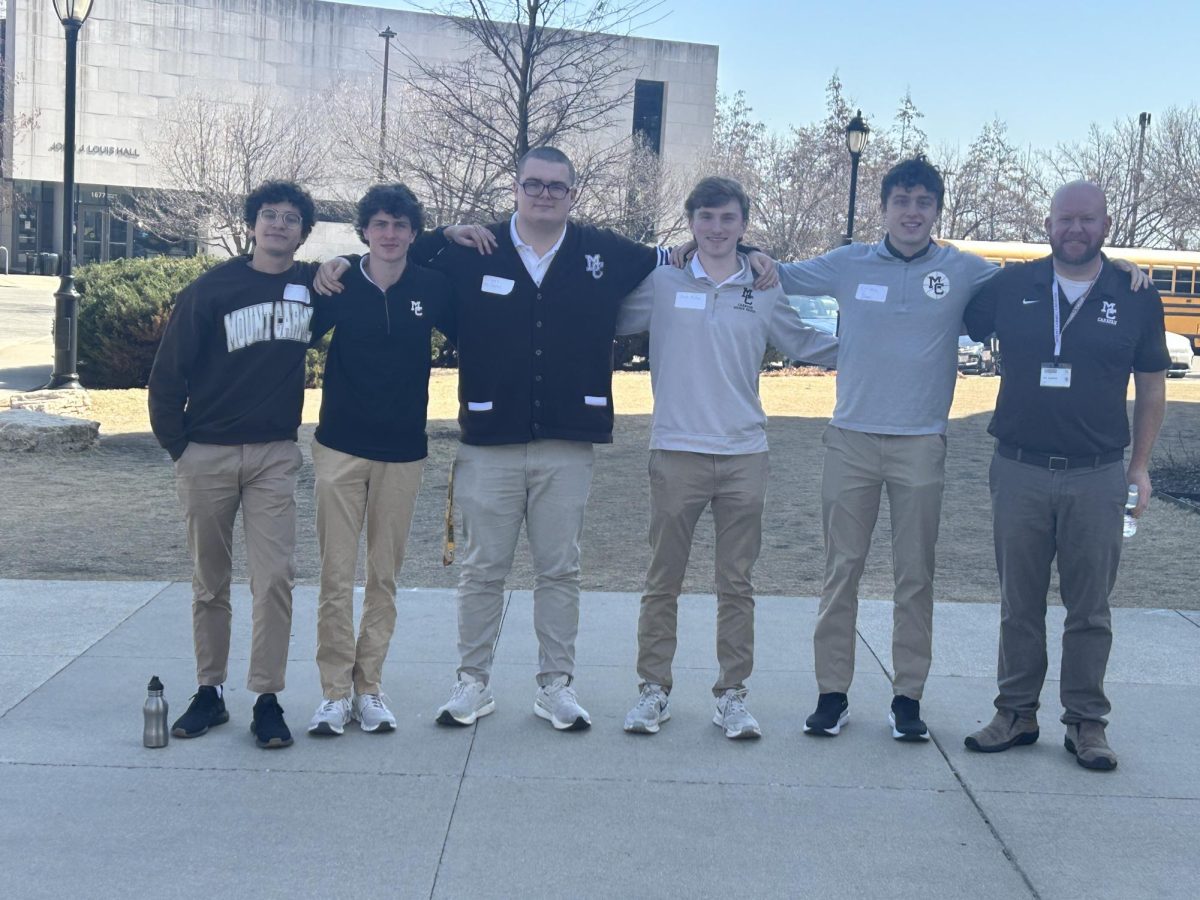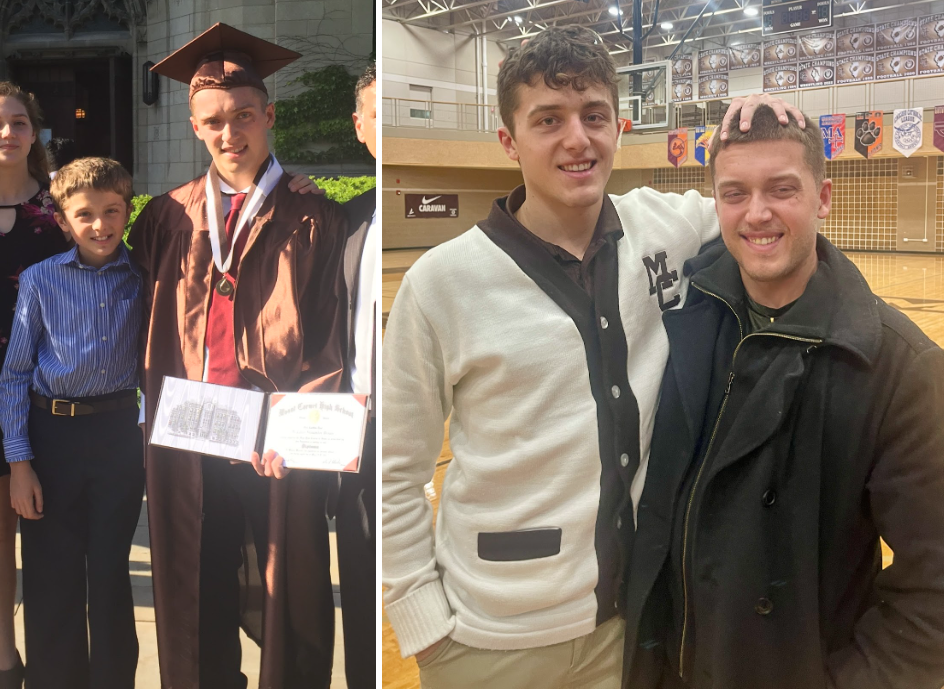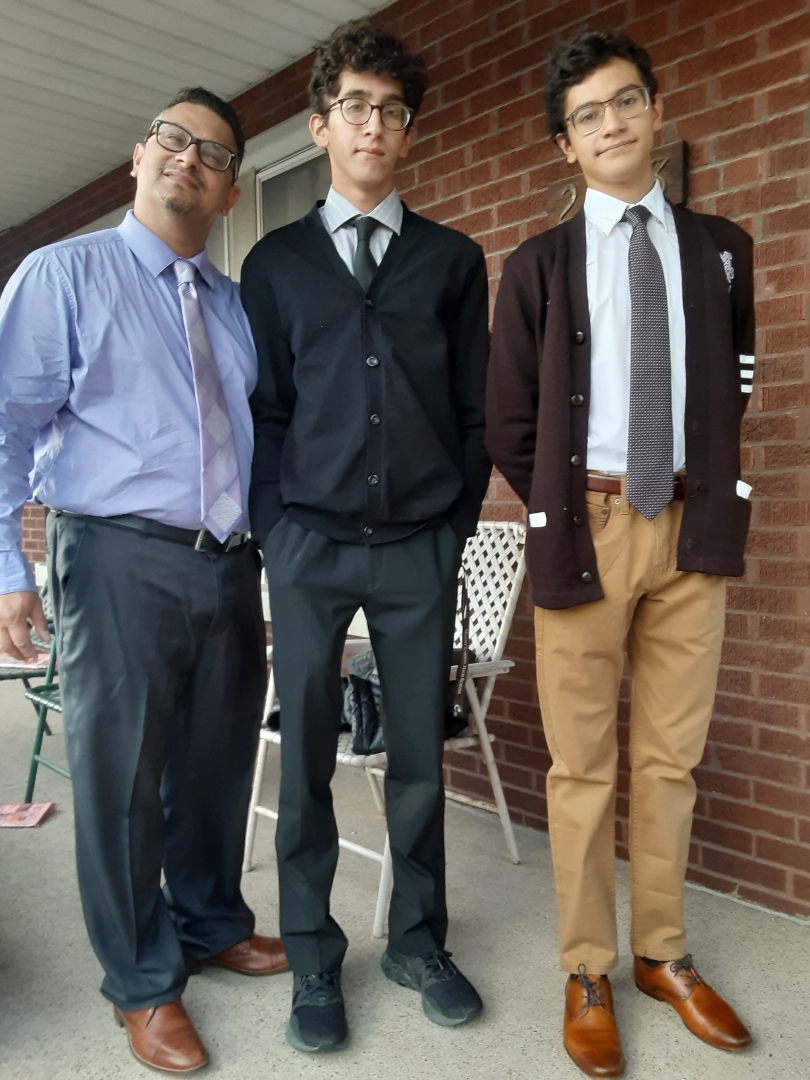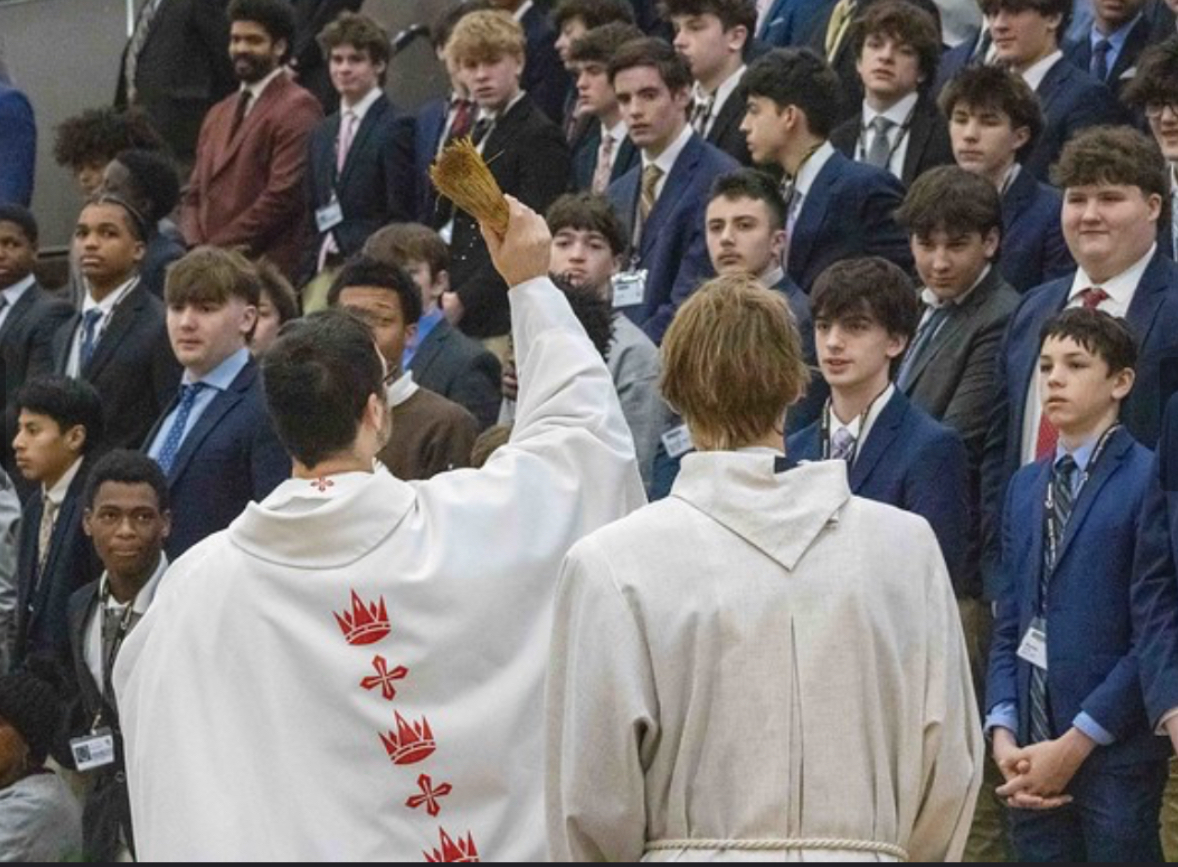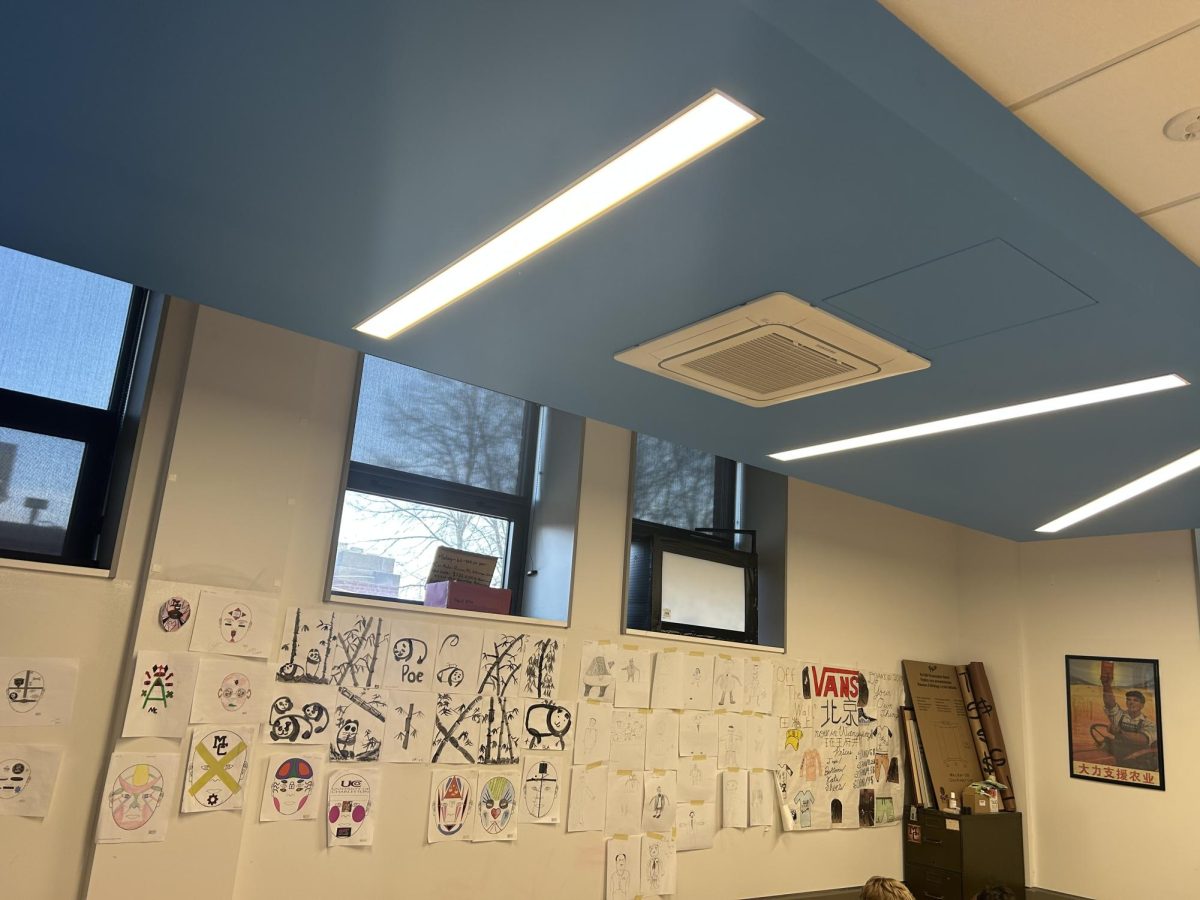During the first and second trimesters of this school year, I found Honors 21st Century Media, which involves writing for this very publication, The Caravan, to be challenging. Coming up with article ideas, contacting interviewees, and working on outlines proved difficult for me. However, as I entered into the third trimester, I began to recognize in what ways my hard work for The Caravan paid off.
“It’s just not your average class, and it’s not something you can blow off,” says senior and editor Matt Malloy, who has taken the class in both his junior and senior years. “You gotta put the work into it, but the rewards are great.”
Articles are written following interviews with persons involved in the student writer’s topic of choice. These interviews are what provided me with a greater sense of MC’s community.
“In this class you get to go interview a ton of people from the school,” Malloy says. “As time goes on, the more people you interview, the more people you know.”
Interviews can be as simple as a quick conversation, and it is often that those conversations give deeper understanding of the kind of people we have on campus at MC.
“You get to know people more than just saying ‘hi’ to them in the hallways,” senior and staff writer Christos Dimas says. “Take for example Coach [Jordan] Lynch. I’ve probably interviewed him three or four times now this past school year. I obviously knew him, but now I feel a sense we’re pretty familiar with each other now.”
I’d recommend joining The Caravan to a student solely for the sense of community it fosters. As Malloy put it, “What is the point of going to high school and not getting to know anybody?”
In addition to feeling a greater sense of community, I also feel that interviewing for The Caravan can improve a student’s social skills.
“Through this class, you talk to a lot of people from all over,” Malloy says. “By talking to all these different people, you learn a lot about how to go through a conversation. You learn how to ask the right question.”
During Spring Break I happened to arrive on campus 30 minutes before a track practice, meaning head coach J. Fisher and I had time to kill. Instead of waiting in awkward silence, he and I had an interesting talk because we both understood how to ask each other questions. It felt so gratifying to use my experience from prior interviews to converse in this way.
Talking to someone in person may seem like a simple everyday occurrence, but it is still a skill that many of us can improve on, especially because electronic communication has become commonplace.
“A baby learns how to read somebody’s facial expressions and body language before they’re able to talk, and electronic communication loses that,” says Mr. Tim Baffoe, who teaches Honors 21st Century Media and moderates The Caravan. “In-person conversations can be far more fulfilling and present many more opportunities for understanding other people, learning about people, and growing as a person.”
I feel even more fulfilled understanding that this form of communication is going to be important in my future.
“I’m definitely a lot more thoughtful about what comes out of my mouth,” Dimas says. “If you’re trying to get a raise and you use slang or basic words then maybe you won’t get that raise. But if you’re able to present yourself in a professional manner then people treat you professionally.”
I now recognize how important and nuanced conversation can be. This very easily could have been a lesson I neglected to learn had I not joined The Caravan.
On top of building community and social skills, writing for The Caravan also provides a student a creative outlet.
“As an English teacher, I can’t make all five days a week opportunities for students to just express themselves creatively because of other things we are learning,” Mr. Baffoe says. “21st Century Media is a unique class in that I think it provides a larger ratio of creativity to day-to-day experiences.”
Writing for The Caravan is creative because of how hands on it is for a staff writer and editor. A student can write either a feature, news, sports, or editorial piece, but no one article is forced onto him. Even with those boundaries, a student can still write an article on just about anything MC related. It is these creative liberties that can offer a student so many benefits.
“It just allows [students] to conduct themselves in a more professional manner,” Dimas says. “When you’re able to express your ideas and express information that’s given to you in a coherent manner then you’re more professional.”
Also, the sense of accomplishment that comes from publishing one’s own creative work is something that far outclasses submitting homework.
“When I was a student, [the school newspaper] was only published in a hard copy, but it was cool to see your name in the newspaper,” Mr. Baffoe says. “I don’t think a lot of students consider a piece of writing something that they’ve crafted, but it’s still like something that the student made, and it’s something that 20 years from now they can hopefully go back and be like, ‘Oh yeah, I wrote that thing for the Mount Carmel student publication, and I’m part of the history of The Caravan newspaper.’”
Some students may be opposed to joining Honors 21st Century Media because of the amount of writing and the writing schedule. Students on The Caravan staff are writing articles most weeks of each trimester. However, the work itself pays off in more ways than I’ve even mentioned, and it’s for all of those many reasons that I feel you should join The Caravan.
“I was the Chicago High School Journalist of the Year, so this class has given me more than I could have given it in a way,” Malloy says. “When I walk away in May and I stop writing articles, I’ll still be able to say I have these awards, but I’m not going to be writing for the paper anymore.”

